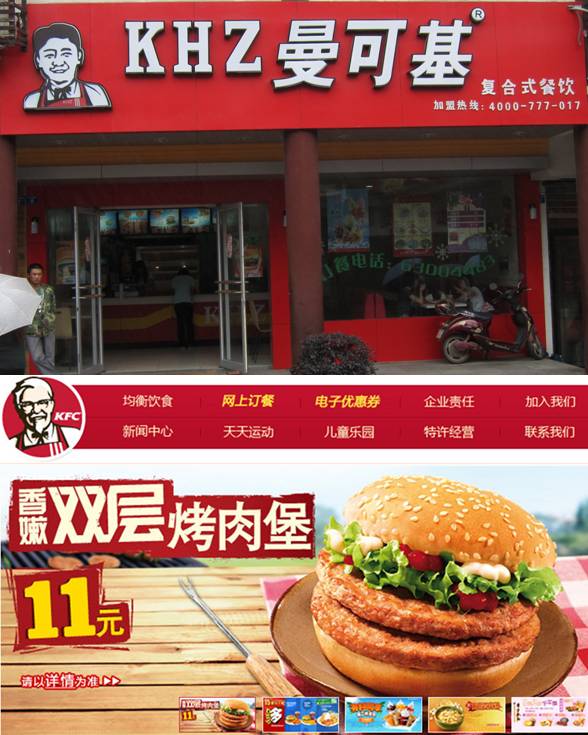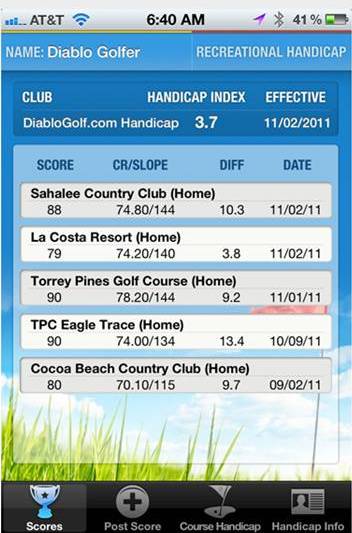Entries in Trademark Infringement (368)
Land Rover Sues "British Northwest Rover" Restoration and Repair Company
Fair or unfair? That is the question.
Screen shots from Land Rover’s and British Northwest Rover’s Web sites
Plaintiff Land Rover is the well-known luxury-utility vehicle manufacturer from England.
Defendant British Northwest Rover, Ltd., is an Olympia, Wash.-based company that provides restoration and maintenance services of Land Rover vehicles.
On Aug. 1, Land Rover sued British Northwest Rover in the Western District of Washington, claiming that the defendant’s use of “Rover” in its name — and “Land-Rover” in its alleged former name, “British Northwest Land-Rover Co.” — constitutes trademark infringement and trademark dilution.
Will defendant’s alleged use of plaintiff’s trademarks turn out to be nominative fair use that simply communicates the type of vehicle that it restores and repairs? Or does its alleged use go too far, creating a likelihood of misleading the public into believing that it has some sort of affiliation with or permission from Land Rover, such as offering services that Land Rover endorses or authorizes?
The answer to those questions probably will dictate how the case turns out.
Defendant has not yet answered plaintiff’s complaint.
The case cite is Land Rover v. British Northwest Rover, Ltd., No. 12-5682 (W.D. Wash.).
Seemingly ubitquitous blogger, IP solicitor, and man about town Peter Groves picks this story up from London. Interestingly, the law on fair use of a trademark appears to be much more restrictive over there.
Ninth Circuit Vacates Trademark Infringement Dismissal
The Ninth Circuit decided a trademark infringement lawsuit while I was in China. It came down on June 27, but here’s a quick summary. Sorry for the delay!
Rearden LLC sued Rearden Commerce, Inc., for trademark infringement in the U.S. District Court for the Northern District of California. Rearden LLC owns technology start-up incubators and artistic production companies. Rearden Commerce is a “concierge” company that links buyers and sellers of business and travel-related services. The beef, obviously, was over the parties’ competing uses of REARDEN.
The district court granted summary judgment for Rearden Commerce.
Citing the factual nature of trademark infringement claims, the Ninth Circuit vacated the order. It’s a pretty fact-specific decision, but the court concluded that genuine issues of material fact existed with respect to both “use in commerce” and likelihood of confusion. Therefore, it found the district court’s dismissal on summary judgment was a mistake.
The court held: “There, nevertheless, are genuine issues of material fact present in this case with respect to at least some of the factors as well as the overall Sleekcraft [v. AMF, Inc. v. Sleekcraft Boats, 599 F.2d 341 (9th Cir.1979)] inquiry itself. The District Court acknowledged that two factors — namely the ‘strength of the mark’ and ‘similarity of the marks’ factors — weigh ‘somewhat’ in favor of Appellants. Indeed, a reasonable jury could give great weight to these two factors, especially when viewed together. We also determine that there are genuine issues of material fact with respect to the ‘proximity of the goods,’ ‘evidence of actual confusion,’ ‘marketing channels used,’ and ‘likelihood of expansion of the product lines’ factors.”
The court remanded the case to the district court for further proceedings consistent with these findings.
The case cite is Rearden LLC v. Rearden Commerce, Inc., __ F.3d __, No. 10-16665, 2012 WL 2402012 (9th Cir. June 27, 2012).
China Trademark Safari: The Final Installment
Forget about the iPad settlement.
The real news in China is KHZ’s infringement of KFC:
 KHZ (top) and the original: Tongli’s new spin on fast chicken
KHZ (top) and the original: Tongli’s new spin on fast chicken
KFC is all over China, so it’s not like another chicken joint’s calling itself “KHZ” was a coincidence. Nor was its choice of a red-and-white color scheme or use of a Colonel Sanders stand-in.
But even then, it probably wasn’t the most brazen example of infringement I saw. Anyone up for Thomas the Train Pizza?
Thomas the Train Pizza, Beijing-style
And who needs Tommy Hilfiger when you’ve got Tommy Welai? I’m sure the clothes are the same either way.
Beijing’s Tommy: Tommy Welai
Last but not least, a fake “Cheers” bar. Where everybody knows your name — assuming it’s Wong, Lee, or Cheung. Ni hao!
Cheers - Suzhou: Miles from Boston, but everyone still knows your name
It was an awesome trip. By highlighting some of the crazier instances of trademark infringement I found, I’m in no way trying to take anything away from this wonderful country. China rocks. The people are friendly, the food is good, and the subway (in Beijing, at least) costs 30 cents to ride. Who can beat that?! I plan to return as soon as possible.
Photos by STL.
Golf App Maker Sues U.S. Golf Association in Seattle for Unfair Competition
 Screen shot from Diablo Golf iPhone app
Screen shot from Diablo Golf iPhone app
XYZ Media, Inc., is a Bellingham-based company that develops Web sites and apps for smart phones. It publishes www.DiabloGolf.com, a social networking Web site for golfers, and an app by the same name. XYZ’s site and app stores a golfer’s scores, courses played, slope ratings, course ratings, and enables users to calculate course handicaps.
The U.S. Golf Association (USGA) provides goods and services to golfers and golf courses. The USGA claims to own common law or registered trademarks in HANDICAP INDEX, COURSE HANDICAP, SLOPE, and COURSE RATINGS in connection with golf.
On June 8, XYZ filed suit against the USGA in the Western District of Washington. The lawsuit claims the USGA wrongly terminated XYZ’s access to USGA data used in the Diablo Golf Website and app in an effort to convert users to USGA’s competing product. XYZ also claims the USGA falsely told Apple that XYZ was not authorized to create iPhone apps using USGA’s data, and threatened suit based on XYZ’s use of the terms “handicap index,” “course handicap,” “slope,” and “course ratings,” which XYZ says are generic and/or functional.
XYZ seeks damages and injunctive relief, as well as declarations of noninfringement. It also seeks to cancel the USGA’s federal trademark registrations.
The suit makes similar claims against the Washington Golf Association.
Defendants have not yet answered the complaint.
The case cite is XYZ Media, Inc. v. United States Golf Association, No. 12-989 (W.D. Wash.).
Court Grants Judgment Against Unauthorized Seller of T-Mobile Products
Defendant George Collett wrongly used T-Mobile’s trademarks in selling T-Mobile SIM cards and airtime without its permission.
Western District Judge Ronald Leighton came to that conclusion April 23 when he granted summary judgment to T-Mobile on its Lanham Act claims and permanently enjoined Mr. Collett from using its trademarks or selling any of its branded products.
The injunction isn’t surprising, given the court’s description of Mr. Collett’s activity:
“Defendant falsely advertised and promoted through interstate commerce that he was an authorized T–Mobile dealer selling genuine T–Mobile products and services. Mr. Collett testified that he sold T–Mobile Phones and SIM cards on eBay and Craigslist, purchased T–Mobile SIM cards, pin numbers and activation codes, posted a sign in his store saying ‘unlimited T–Mobile service $50 a month’ and advertised that he was a T–Mobile dealer. Defendant also improperly advertised his store as a T–Mobile store with an unlimited T–Mobile service plan for $45 per month without a credit check. These representations were false, as the Court finds that George Collett’s store and the T–Mobile products and service plans he offered were not sanctioned by T–Mobile in any way.”
The court also awarded T-Mobile $349,481.64 in damages and found the case was sufficiently “exceptional” that it justified an award of attorney’s fees — in part because Mr. Collett “refused to cooperate in discovery, repeatedly violated Court Orders and continued to violate” the court’s preliminary injunction.